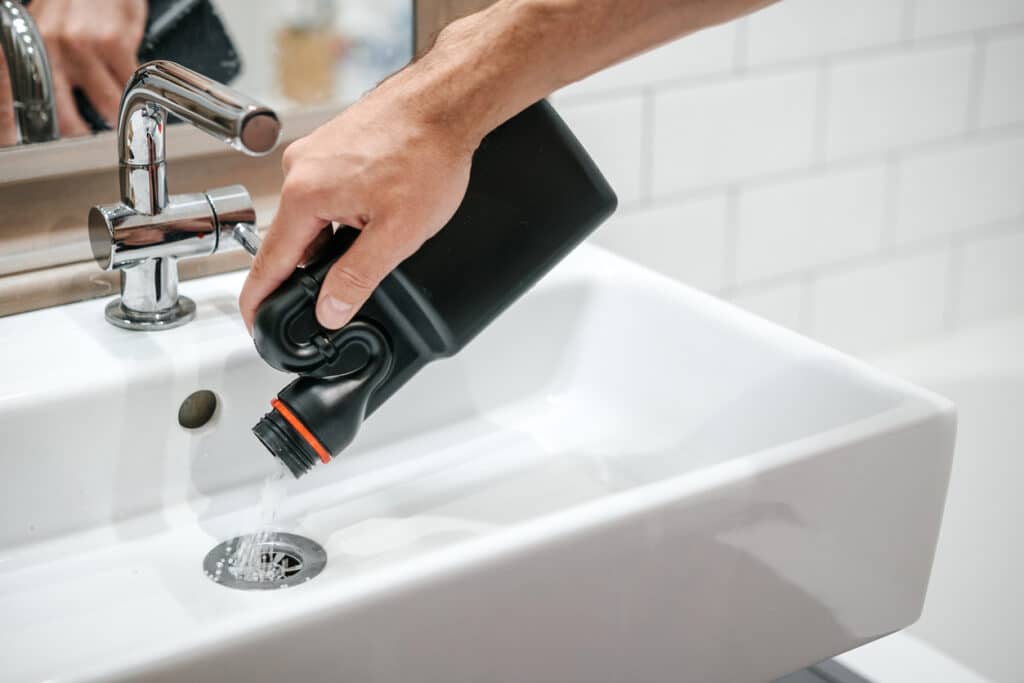Drain odor has various causes. Odor is often the result of sewage backups, sewer gas seeping up through drains, chemical or organic matter, or misusing garbage disposals. Before trying to solve the problem, you need to determine where your drain odor may be coming from and identify any hazards associated with it.
Causes of Drain Odor
A number of things can cause drain odor, including:
- Buildup of grease and food particles: When these build up in your drains, they can start to decompose and produce a foul odor.
- Sewage backup: If there is a sewage backup in your drains, it can cause a strong, unpleasant odor.
- Bacterial growth: Bacteria can grow in your drains and produce a foul odor.
- Plumbing problems: If you have a plumbing problem like a clogged drain or a leak, it can also cause a drain odor.
Safe Solutions for Drain Odor
There are a number of safe solutions that you can use to eliminate drain odor. They include:
- Baking soda and vinegar: Pour a cup of baking soda down the drain, followed by a cup of vinegar. These ingredients will react and create a fizzing action that will help to break up grease and food particles.
- Bleach: Mix one part bleach with four parts water. Pour the solution down the drain, and let it sit for 30 minutes before flushing the drain with hot water.
- Enzyme drain cleaner: Enzyme drain cleaners offer a safe and effective way to eliminate drain odor. They work by breaking down grease, food particles, and bacteria.
- Plumber’s snake: If you have a clogged drain, you may need to use a plumber’s snake to clear it. This is a long, flexible tool that can be inserted into the drain to break up the clog.
Prevention Tips
The best way to prevent drain odor is to keep your drains clean and debris-free. Here are a few tips for prevention:
- Scrub your drains regularly: Use a mild soap and water solution to scrub your drains weekly. This will help to remove grease and food particles and prevent them from building up again.
- Use a strainer: A strainer or a filter can catch grease and food particles before they can go down the drain.
- Pour hot water down the drain after each use: This will help to flush away any grease and food particles that may have been left behind.
- Don’t pour grease and oil down the drain: Grease and oil can solidify and cause clogs. If you have these substances, pour them into a container, and dispose of them properly.
Conclusion
It is important to identify the cause of foul drain odor and take steps to eliminate it. Our company offers great plumbing services for drain lines’ cleaning and replacement. We can provide quick and effective plumbing services thanks to our experienced technicians and advanced equipment. Contact us at Evenflo Plumbing for reliable and proficient drain cleaning in Corvallis, OR.




